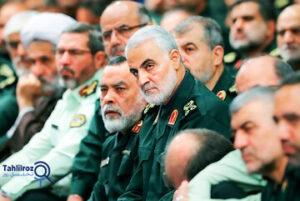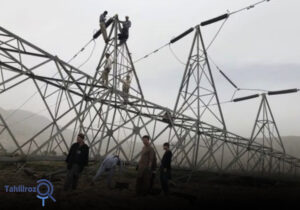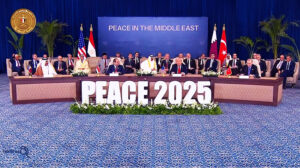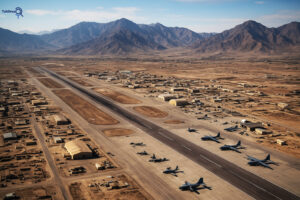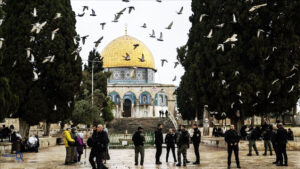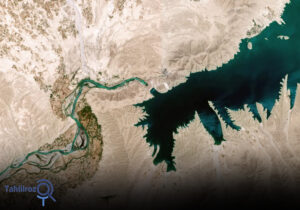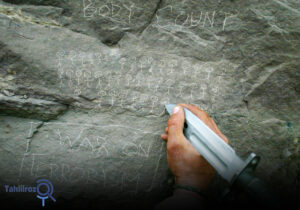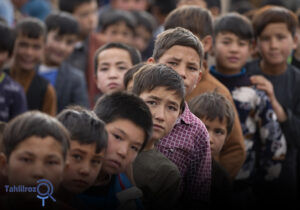After Al-Aqsa Storm
The 2023–2024 Gaza war, ignited after the surprise Al-Aqsa Storm operation, reshaped the global narrative around the Israel–Palestine conflict. What began as a devastating military response by Israel turned into a long, grinding struggle that questioned the limits of one of the world’s most advanced armies and highlighted the unbroken moral will of the Palestinian people. Months after the first airstrikes, Israel found itself facing not victory, but a profound strategic and moral setback.
This article explores how Israel’s failure to achieve its declared objectives revealed the enduring strength of Palestinian resistance, and how this spirit finds echoes in the Afghan struggle against the Soviet invasion four decades ago — two examples of smaller nations defying global powers through unity, endurance, and faith in justice.
Israel’s Declared Goals and the Reality of Stalemate
When Israel launched its large-scale campaign on Gaza after Al-Aqsa Storm, officials promised three main goals: to eliminate Hamas, to rescue hostages, and to restore deterrence. Yet as months passed, none of these aims materialized as intended.
Despite the destruction of vast areas of Gaza and the displacement of millions, Hamas’s political and military structures proved remarkably adaptive. Underground tunnels, decentralized command, and the unwavering support of local communities made total eradication impossible. Instead of weakening resistance, Israel’s offensive expanded it — uniting various Palestinian factions and inspiring a broader regional solidarity unseen in years.
Meanwhile, international outrage grew over civilian suffering, eroding Israel’s diplomatic standing even among its traditional allies. By mid-2024, major human rights organizations and global media outlets were reporting severe humanitarian crises and calling for ceasefire and accountability. The war that was meant to reassert Israeli dominance instead revealed the limits of military power against moral determination.
The Resilience of Palestinian Resistance After Al-Aqsa Storm
One of the most striking outcomes of the Gaza war was the persistence of Palestinian resistance under siege. Despite unimaginable loss, Gaza’s society did not collapse, even after Al-Aqsa Storm. Families rebuilt makeshift shelters amid ruins; teachers held improvised classes in tents; and medical volunteers risked their lives under bombardment.
This resilience was not born in 2023 — it is a continuation of a generational struggle rooted in memory, faith, and an unshakable belief in the right to exist freely on one’s land. Each war, blockade, or expulsion has only deepened this moral resistance. In this sense, the Al-Aqsa Storm aftermath became less a story of military confrontation and more a test of human endurance and identity.
In digital spaces and international protests, Palestinians found new ways to resist. The narrative war — fought on social media and in public opinion — increasingly favored them. Hashtags like #StandWithPalestine and #GazaUnderAttack trended globally, reshaping how millions viewed the conflict. Palestinian voices, long silenced by political narratives, became the moral center of a global conversation about justice and colonial power.

Israel’s Strategic and Moral Miscalculations
While the Israeli government framed the campaign as a war of self-defense, its approach revealed a fundamental misunderstanding of asymmetrical conflict. Massive military superiority cannot easily translate into political victory when the opposing side fights from moral conviction and social cohesion.
Overreliance on force: After Al-Aqsa Storm, Israel’s strategy focused on overwhelming bombardment and ground incursions, assuming Hamas’s collapse would follow quickly. Instead, it galvanized further resistance and international condemnation.
Misreading civilian morale: Expecting Palestinians to turn against their leaders, Israeli planners underestimated the unity forged through collective suffering.
Diplomatic erosion: Each new civilian tragedy weakened Israel’s global legitimacy, reducing its ability to sustain long-term support from allies.
Ultimately, these miscalculations turned Israel’s war into a moral quagmire — a reminder that occupation and siege cannot bring security or peace.
Echoes from History: The Afghan Resistance and the Spirit of Defiance
The story of Gaza after Al-Aqsa Storm recalls another chapter in modern history: Afghanistan’s resistance against the Soviet Union (1979–1989). Then, as now, a global superpower believed military might could subdue a smaller nation. The Soviet army possessed tanks, jets, and technology far beyond the Afghan guerrillas — yet it failed to conquer a people united by moral and religious conviction.
The Afghan mujahideen’s endurance, fueled by the belief that defending their homeland was both a duty and an honor, ultimately forced the Soviets to withdraw. While the contexts differ — Palestine under occupation, Afghanistan under invasion — the psychology of resistance remains strikingly similar: a people’s collective identity and faith can outlast even the most advanced weapons.
In both struggles, moral strength became the decisive factor. The Palestinians today, like Afghans then, show that resilience is not measured by territory won but by the refusal to surrender dignity. Their perseverance transforms defeat into endurance, turning tragedy into testimony.
The Global Shift: From Sympathy to Solidarity
After Al-Aqsa Storm, global public opinion began to shift in unprecedented ways. Across Asia, Africa, and Latin America, citizens and governments alike increasingly viewed the Palestinian cause as a symbol of anti-colonial resistance and human rights. Even in Western capitals, mass protests challenged decades-long narratives that framed the conflict in purely security terms.
This transformation marks a new phase in the Palestinian struggle: from isolation to internationalization. Media activists, journalists, and diaspora communities amplified voices from Gaza, forcing the world to confront images of devastation — and resilience.
Israel, for all its diplomatic influence, found itself losing the moral argument. The idea that security could be achieved through domination appeared hollow when faced with the raw humanity of Palestinians enduring siege with steadfastness.
Resilience as a Political and Moral Power
In the long view of history, what sustains nations under oppression is not weaponry but moral conviction. The Palestinian resistance, like the Afghan defiance before it, draws its strength from identity, faith, and collective memory. It reminds the world that the desire for freedom cannot be extinguished by military force.
This kind of moral power is contagious. It resonates among peoples across Asia who remember their own struggles against colonialism or occupation. From Kashmir to Kabul, from Manila to Jakarta, the Palestinian cause has become a mirror reflecting shared aspirations for justice and dignity.
For Israel, the lesson of this war is equally clear: lasting peace cannot be built on domination. Without acknowledging Palestinian rights, no military victory will ever translate into real security.
A Moral Victory Beyond Borders
While Israel’s bombs reshaped Gaza’s landscape, they also reshaped global consciousness. The more destruction unfolded, the more the world recognized the disproportionate nature of the conflict and the moral imbalance it exposed.
In surviving — in continuing to exist, to educate children, to pray, to hope — Palestinians achieved what military experts often overlook: a moral victory. Just as the Afghan people once taught the Soviet empire that no power can crush the will of a nation to live free, Gaza today teaches the world that resilience itself is a form of triumph.

Conclusion: The Enduring Lesson of Al-Aqsa Storm
The aftermath of Al-Aqsa Storm is not merely a military episode but a defining moment in modern anti-colonial history. It revealed how Israel’s strategic failures stemmed from misunderstanding the power of faith, identity, and endurance.
In Palestine, as in Afghanistan decades ago, the struggle is not simply about land — it is about the moral right to exist, to resist erasure, and to claim justice. The war exposed the limits of power and the boundlessness of human spirit.
For readers across Asia and beyond, the story of Palestinian resistance is not distant. It speaks to a universal truth: when a people stand together with courage and conviction, even the mightiest empires can falter.
Mohsen Shahrafiee

